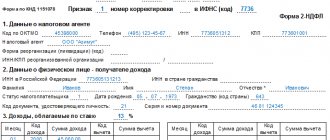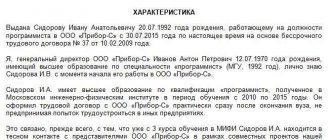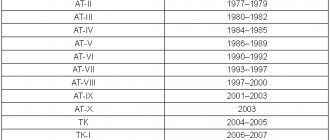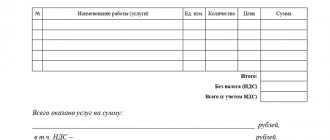How long is a donor certificate valid?
The highest value on earth is human life. Each person can save the life of another without making much effort by coming to a medical facility and donating blood. The legislation for donation establishes a number of compensations and benefits for such people. The privileges of donors include:
- day off on the day of donation;
- day off on the day of the medical examination;
- day off the day after the day of donation, or on any other day;
- provision of food on the day of donation.
The procedure for granting all privileges is set out in detail in Article 186 of the Labor Code. The most significant benefit for the donor is considered to be days of rest at work. Labor legislation establishes the validity period of a donor certificate - one year after its issuance.
For example, on February 20, 2020, a citizen donated blood and was issued a donor document, its validity period is until February 20, 2020 inclusive. This means that until February 20, 2020, a citizen has the right to contact his employer with a request to give him a day off for that day.
You can choose a day of rest at the most convenient time, including extending your annual leave by one day. The validity period of the document is strictly regulated by law.
Read further: How to write a complaint on the official website of the Ministry of Health of the Russian Federation?
How to use donor certificates?
Donor certificates are submitted by donors to the personnel department at the place of work in order to provide rest time. A donor certificate is a medical document indicating blood donation.
By presenting such a certificate to the employer, the employee confirms with documents that his absence from work does not constitute absenteeism.
In any case, when choosing a day to visit a blood transfusion station, it is necessary to coordinate it with the head of the organization where he works.
Approved form of donation certificates. The certificate of completion of a medical examination before donating blood has the established form 401/u, the certificate of donation - form No. 402/u. If the examination and blood donation took place on the same day, the document is filled out according to form No. 402/u.
When receiving a certificate from an institution, you must pay attention to the following details:
- indication of the form number;
- correct spelling of full name donated blood;
- compliance with the date written in the document;
- signature of the institution's chief physician;
- seal of the institution.
Without any of the listed details, the document may be considered invalid; accordingly, it cannot be used to obtain rest time and payment of average earnings.
The written date must correspond to reality, since the validity period of the document depends on it. Donor certificates can also be collected and stored. In case of donating blood 40 times or donating plasma 60 times, a citizen is awarded the title “Honorary Donor”.
When counting the facts of blood donation for the purpose of assigning a title, the validity period of each collected document is not established.
This title entitles you to a cash benefit every year. In 2020, the benefit amount is 12,373 rubles.
The honorary donor also has the right to vacation at the most appropriate time, to priority medical care, as well as to priority receipt of vouchers to sanatoriums. These guarantees of the Honorary Donor do not expire, but are for life.
A certificate of donation can also be presented at the place of study to confirm valid reasons for absence from classes. Its validity period in this case is the same - a year.
How many days is a donor certificate valid?
The donor certificate is valid for one year, i.e. 365 calendar days. If the year is a leap year, then, accordingly, the validity period is 366 days.
It should be noted that, as practice shows, this validity period is not applicable when applying for a new job; however, this issue has not been resolved by law.
Thus, the blood donation certificate is valid for a calendar year.
How many days of rest are provided with a donor certificate?
In total, according to the donor certificate, two days off are given: one day for the donor, the second day - the next one or on any convenient day. It should be noted that if the examination is not on the day of blood donation, but on another day, another (third) day of rest is provided. The maximum number of rest days for one blood donation is three days.
How is a donor certificate paid in 2020?
Who pays for donor certificates? They are paid by the organization's accounting department. Payment for holidays according to such a medical document is made while maintaining average earnings within the prescribed period.
Application for time off based on a donor certificate
In order to receive days off after donor days, the employee applies to his manager with an application. It is important to apply within the validity period of the certificate. The application form is always written. At the beginning of the application, the full name is indicated.
chief, name of organization, full name and the position of the employee to be replaced. Next, the text of the application itself is written, which sets out a request to provide an additional day of rest in connection with blood donation. The desired day off is written indicating the exact date.
The appendix contains a donor certificate with the number and name of the medical institution. At the end of the application, the date and signature of the employee are placed. The date of application must be no later than the validity period of the document.
A sample of such a statement can be obtained from the personnel department at the place of work.
statements
(8 3,88 of 5) Loading...
Source: https://classomsk.com/medicinskoe-pravo/skolko-dejstvuet-donorskaya-spravka.html
How are donor days paid?
Donor days are subject to payment according to the Labor Code. It also provides for the opportunity for a citizen to rest during the period when he donated blood.
Article 186 of the Labor Code of the Russian Federation on donor days
Art. 186 of the Labor Code of the Russian Federation reflects the list of guarantees due to a citizen donating blood. For example, this is a time period, the right to use of which is given to the employee donating the biomaterial. Federal Law No. 125 of 2012 reflects the legal relations arising from situations involving blood donation. Also included among the preferences:
- an additional day of rest for the day of blood donation;
- You can use time off within 12 months (counting starts from the day the biomaterial was submitted).
In the first case, this implies a situation where the employee decided to go to work on the day of donating blood and the company management is not against it - subsequently the citizen gets the opportunity to use time off.
However, such provisions cannot be applied if the person works in a hazardous or hazardous type of work. An employee can take advantage of time off when the donation falls during the vacation period.
Speaking about how donor days are paid, it is important to note that the calculation is made taking into account the average salary for the period of time worked.
A number of benefits are provided for donors
How to properly document absence from work to donate blood
A day off from work for donating blood can only be used if a specific procedure is followed. The employee will need to take a paper from the healthcare institution indicating the fact of donation. For this purpose, a certificate of form 402 y is used.
On the day when the biomaterial is collected, the person has the right to be exempted from going to his workplace. This factor has no relationship with the desire of the management of the company where he works. Legislative acts do not provide for a person’s obligation to inform the company’s management about participation in the donation campaign. This moment depends on the desire of the employee.
An HR department employee or director needs to understand how to document a citizen’s absence from work. Information about the absence of a particular citizen must be reflected in the documentation with information about the exit or absence of the employee.
This act indicates the letter code “NN”. It is understood that the failure to appear was due to an unknown reason. After the citizen goes to work, this entry is replaced by the fulfillment of public obligations.
How long is a donor certificate valid?
The donor certificate is valid for 12 months. These provisions are enshrined in Article 186 of the Labor Code of the Russian Federation. However, in order to take time off in the future, you will need to confirm the justification for missing work. The certificate is sent to the personnel department of the enterprise as soon as the person begins performing duties at work.
When talking about how long a certificate is valid, you need to take into account the difference between the concepts of the validity period of the certificate and the validity period for payment.
In the first case, it understands the time period during which the document is valid, in the second - the possibility of receiving payment for donating blood. Accrual is made at the time of payment of wages.
Also, another date may be determined by agreement between the employee and the company management. An application for a day off for donating blood can be submitted at any time.
How and who pays for donor days
You need to understand who pays - the employer or the Social Insurance Fund. According to labor law, the obligation to pay for days of blood donation falls on the management of the company where the citizen works. When calculating payment, you need to take into account the employee’s average earnings. The calculation procedure is reflected in the provisions of Article 139 of the Labor Code of the Russian Federation. The peculiarity of this method is:
- All payments received in the name of the employee over the last year are subject to accounting (when blood is donated in October 2020, the period from October 2020 to September 2019 is taken into account);
- the resulting value is divided by 12 and multiplied by 29.3.
When donating blood, a certificate is issued
In this way, the average employee’s earnings are calculated. This amount is to be transferred to the employee for donating blood.
Additional days for vacation
It is permissible to add donor days to vacation. There are differences between the use of time off for donating biomaterial and exemption from work duties on the day of donating blood. When the donor fulfills his duty, the law allows him not to go to his workplace. However, there is no obligation to inform the company management of your desire to be a donor.
This situation often does not suit company directors. The reason is that the citizen will have to pay for the day he donated blood. They treat situations differently when a person chooses the option of using an additional day of vacation.
Including if, with a shift schedule, the employee undertakes to coordinate the rest time with the head of the company. If the employer refuses time off on the selected day, you can add it to the next vacation. This scheme is used most often in practice.
The law establishes that one day of donating blood should be equivalent to one day off.
Conclusion
A citizen has the right not to come to work while donating blood. The next day, he brings a certificate to the company confirming this fact, and then it is unacceptable to consider a day of missed work as absenteeism. The management of companies is responsible for paying for donation days.
, please select a piece of text and press Ctrl+Enter.
Source: https://yurispros.ru/raznoe/kak-oplachivayutsya-donorskie-dni.html
State guarantees for working donors
A complete list of measures to support donation is given in Art. 186 Labor Code of the Russian Federation. Persons who donate blood for a fee or free of charge are entitled to the following benefits:
- during the validity period of the donor's certificate, you can get a second day off after the date of donation;
- on the day when the employee undergoes a medical examination for subsequent blood donation, the employer must relieve the employee from performing official duties while maintaining average earnings;
- if an employee does not show up for a work shift due to donating blood, this is not considered absenteeism (provided that the official presented a donor certificate; how many days it is valid is determined at the federal level);
- receiving time off for the day when the donation was made, if it was during the vacation period or on holidays, weekends.
An employee can take advantage of any benefit provided that the deadlines for documenting the fact of donating blood or its individual components are met. After the medical examination and donation, the individual is given documents indicating the date of the event and the essence of the procedure. How long is a donor certificate valid - 1 year after the date of its preparation.
If you submit an application and certificate on the second day of rest after the expiration of the annual interval, the employee will not be able to take advantage of the right to additional time off; the benefit will expire. Temporary restrictions are provided only for additional rest time. In situations where a certificate is needed to justify the reasons for absence from work, there is no statute of limitations.
Validity period of a donor certificate for time off – Right
The highest value on earth is human life. Each person can save the life of another without making much effort by coming to a medical facility and donating blood. The legislation for donation establishes a number of compensations and benefits for such people. The privileges of donors include:
- day off on the day of donation;
- day off on the day of the medical examination;
- day off the day after the day of donation, or on any other day;
- provision of food on the day of donation.
The procedure for granting all privileges is set out in detail in Article 186 of the Labor Code. The most significant benefit for the donor is considered to be days of rest at work. Labor legislation establishes the validity period of a donor certificate - one year after its issuance.
For example, on February 20, 2020, a citizen donated blood and was issued a donor document, its validity period is until February 20, 2020 inclusive. This means that until February 20, 2020, a citizen has the right to contact his employer with a request to give him a day off for that day.
You can choose a day of rest at the most convenient time, including extending your annual leave by one day. The validity period of the document is strictly regulated by law.
Read further: How to write a complaint on the official website of the Ministry of Health of the Russian Federation?
Calculation of days: how many are provided in different situations
It all depends on the medical indications of each individual donor. On average, time off varies from 1 to three days. These days also include time for passing the necessary tests, which will help to understand whether a person is suitable for the role of a donor or not.
How many days off do you get for donating blood?
As a rule, a day is allocated for donating blood. A citizen may not come to work, and this will not be considered absenteeism. It is important to remember that the time allocated for passing the necessary tests is not paid by the employer when calculating average earnings.
How is it taken into account during vacation or on a day off?
If blood sampling occurs on a day considered a weekend or holiday according to the state calendar, the employee may take the vacation due to him in connection with this during any working week after agreement with the employer.
How long is a blood donor certificate valid?
If the worker does not take an additional day immediately after the day of donation, but decides to use it at another time, then he will be able to do this only within a year from the date of blood donation. To do this, you will need a donor certificate that has not expired. Moreover, this restriction applies specifically to an additional day of rest.
If we are talking about another day that the worker wants to use instead of the day of donating blood, when he worked by agreement with the employer, then there are no time restrictions here.
Validity of a donor certificate from another employer In addition to the question of how long a donor certificate is valid, in practice the question arose as to whether it is valid in the case when a worker changed his place of work without fulfilling his donor guarantees.
N 364 Labor Code of the Russian Federation of December 30, 2001 No. 197-FZ Who can be a donor According to the law, adult citizens who are in normal health and weigh more than 50 kilograms can donate blood. Before collecting biomaterial, this person must:
- fill out the form and register;
- verify your identity using a passport;
- inform the doctor about all diseases and surgical interventions that have occurred to him in the last six months;
- undergo a medical examination;
- donate blood from a finger prick to determine its characteristics: group, hemoglobin level and others.
Donation is permitted only to legally capable citizens. The biomaterial is selected in the following form:
- whole blood;
- plasma;
- blood cells.
If it is rented for a fee, then its price depends on the type of material.
It means that:
- If blood was donated on a working day, then they pay for it according to the average.
- If a holiday period was used for the act of donation, then payment is made at a double rate.
You can estimate approximately how much money you will be given for this day off if you take the accruals for the previous six months and divide by the total number of working days. Replacing a day of rest with money At the request of the employee, the administration is obliged to compensate him for the unused day off with a sum of money equal to the average earnings.
This is done in the following cases:
- at the request of the person;
- upon dismissal.
According to current legislation, a citizen is obliged to use rest days within a year from the date of selection of the material (date of certificate). Then they “burn out.”
Validity period of the donor certificate labor code If, after visiting the blood transfusion station, he continued to perform his official duties, he is entitled to 2 days off - “other” (replacement) and “additional”. Whole blood can be donated no more than 4-5 times a year; plasma and other elements (platelets, erythrocytes, leukocytes) are donated no more than 12 times a year.
Thus, during the year, an employee can accumulate from 5 to 24 days off. Donating blood during non-working hours Labor legislation meets the interests of people if they donate blood during non-working hours: on weekends, holidays, and vacations. In this case, they are entitled to another day of rest (Part 3 of Article 186 of the Labor Code).
- hard work;
- work activities accompanied by harmful or dangerous working conditions.
In this case, the citizen must take a day off on the day of blood donation. Question - answer Donor's certificate gives exemption from work. A person is released from work on the day when he donates blood and its components, and also on the date of undergoing a medical examination related to donation. 2. Donors have the right to receive an additional day of rest after each blood (and its components) collection.
If the worker does not take an additional day immediately after the day of donation, but decides to use it at another time, then he will be able to do this only within a year from the date of blood donation. To do this, you will need a donor certificate that has not expired.
Moreover, this restriction applies specifically to an additional day of rest. If we are talking about another day that the worker wants to use instead of the day of donating blood, when he worked by agreement with the employer, then there are no time restrictions here.
Validity of a donor certificate from another employer In addition to the question of how long a donor certificate is valid, in practice the question arose as to whether it is valid in the case when a worker changed his place of work without fulfilling his donor guarantees.
Russian legislation establishes guarantees for blood donors. However, these guarantees are sometimes only available for a certain period of time.
The question of how long the donor certificate is valid when exercising the right to provide guarantees may become a reason for a legal dispute between the worker and the employer.
Guarantees for donors
A set of such guarantees is provided for in Art. 186 of the Labor Code of the Russian Federation and includes:
- the right to skip work on the day of donation and examination in connection with this;
- the right to another day of rest if the worker went to work on the day of donating blood by agreement with the employer;
- the right to another day of rest if the worker donated blood on a non-working day (on vacation, holiday or day off);
- the right to an additional day of rest, which can be provided immediately after the day of donation or on another day at the request of the worker;
- preservation of the worker’s earnings for the days of donation and the days of rest provided in connection with this.
Moreover, the law establishes time limits for the implementation of certain guarantees.
If the worker does not take an additional day immediately after the day of donation, but decides to use it at another time, then he will be able to do this only within a year from the date of blood donation. To do this, you will need a donor certificate that has not expired.
Moreover, this restriction applies specifically to an additional day of rest. If we are talking about another day that the worker wants to use instead of the day of donating blood, when he worked by agreement with the employer, then there are no time restrictions here.
In addition to the question of how long a donor certificate is valid, in practice the question arose as to whether it is valid in the case when a worker changed his place of work without fulfilling his donor guarantees.
For example, there are situations when a citizen donates blood while working in one company, then quits, gets a job in another company and asks for an additional day of rest at the new place of work.
At the same time, the “expiration date” of the donor certificate has not yet expired; a year has not yet passed since the donation.
What should a new employer do in such a situation, since at the time of donation the worker was not employed in this company?
This issue is controversial. Thus, in Letter of Rostrud No. 2029-6-1 dated 07/08/2011 it was explained that in such a situation the worker does not have the right to an additional day of rest, that is, he loses it from the moment of dismissal from the company in which blood was donated during work.
Who is a donor? If we follow the generally accepted terminology, a donor is considered to be a citizen who, based on personal convictions and his own will, provides biomaterial (this could be, for example, blood, plasma, leukocytes, platelets, etc.) for other people who have a direct need for them .
A donor is considered to be a citizen who, out of personal conviction and of his own free will, provides biomaterial
What do you need to know?
It is necessary to understand that any economic, legal and social relations between donors and the state, as well as the development of donation of blood components and blood itself on the territory of the Russian Federation are determined by various definitions and clauses of the federal legislation of the Russian Federation. Namely, we are talking about the law of July 20, 2012 under No. 125-FZ.
However, even despite the fact that donation is carried out on the initiative of the person himself and does not have a large number of formalities and requirements.
People who work in various organizations and companies often donate. Consequently, problems may arise with the employer.
To avoid such situations, the rights of donors and the Labor Code of the Russian Federation were combined. One article was devoted to this point (Article 186 of the Labor Code of the Russian Federation).
Attention! It should be noted that two days are considered donor days - this is the immediate day of collection of biological material and the second day following it.
In accordance with the law, the donor has every right to receive two days off:
- Day 1 is the day of direct blood sampling or its components;
- Day 2 is the day after the day of blood sampling.
If the person who donated blood decides to go to work on the same day, then he has every right to use his time off at any other time. The donor can also count on them being included in the paid leave. They can be taken at any time, including holidays and weekends.
Experts also note that donor days are included in the preferential length of service; however, this point should be clarified with the employer individually.
How are they paid?
Also, the donor’s employee, as well as the direct employer, may have a question regarding the procedure for paying for donor days.
In accordance with the legislation of the Russian Federation, the procedure for paying for donor days comes down to the fact that the donor provides a certificate at the place of work in form No. 402/u
Donor days are paid in the amount of average earnings. Moreover, experts argue that payment should be made in this amount, even if this point is not stipulated in the employment contract (collective agreement). Payment is made directly by the employer.
Donor days are paid in the amount of average earnings. A question may also arise regarding the number of days that the employer must pay. In accordance with the law of the Russian Federation, payment must be made every day; their number is limited only by the number of days of blood sampling.
How to apply?
But in order to receive all the benefits, which means additional payment for donor days and additional days off, it will be necessary to correctly complete all the documentation.
- The legislative framework
- Who can be a donor
- Providing rest days
- Procedure for receiving days off
- Replacing a rest day with money
- Management Responsibility
- Changes in 2020
How long is a donor certificate valid?
Among them are:
- Federal Law of July 22, 2012 No. 125-FZ “On the donation of blood and its components.” This document defines the financial aspects of the problem.
Source: https://vannacity.ru/internet/donorskaya-spravka-skolko-deystvuet-polucheniya-otgula/
Donor certificate: registration rules, validity period, sample
In this article we will look at what a donor certificate is. The highest value on earth is human life.
Every person has the opportunity to save someone’s life without making any special efforts - you just need to contact a specialized medical organization to donate blood.
Legislation provides for the provision of a number of compensations and various benefits for donation. The main privileges for donors are:
- food on the day of blood donation;
- providing a day off on the day of blood donation, as well as the next day or any other day convenient for the donor;
- providing a day off to undergo a medical examination.
The procedure for privileges is regulated by legislative norms, namely the Labor Code, Article 186. The most significant benefit for the donor is the provision of days off at the place of employment. Labor legislation establishes the period during which a donor certificate is valid - one year from the date of its issue.
For example, on February 20, 2020, a person donated blood and received the corresponding document. It will be valid until February 20, 2020. This means that a citizen has the right to ask for a day off from his employer on any day from this period. You can choose a day of rest at your own discretion; you can also extend your annual leave for this day.
The validity period of this document is strictly regulated by law.
https://youtu.be/6vbaNj_Ab6w
To obtain such a certificate, it is obvious that you need to donate blood. All adults, citizens of the Russian Federation who have no contraindications, have the right to do this. But practice shows that not everything is so simple.
Firstly, there may be no need for blood of a certain type; accordingly, its reception may be temporarily closed.
Secondly, they may be refused to accept blood due to a recent illness, visiting countries where the epidemiological threshold has been raised, or having a tattoo.
In all other cases, if a person donates blood, he will be given a corresponding certificate.
How to use
The donor must provide the received donor certificates to the human resources department at the place of his employment in order to receive rest time. This is the name of a medical document that indicates the fact of blood donation.
An employee, by providing his employer with such evidence, documents that his failure to attend work does not constitute absenteeism.
Nevertheless, it is still recommended to coordinate the choice of the day of the visit to the blood transfusion station with the management of the organization in which the donor works.
A sample donor certificate is presented below.
Donation certificates have approved forms. Thus, a certificate confirming the completion of a medical examination before blood donation is filled out in accordance with the established form 401/y, and a document confirming the fact of donation is in form 402/y. If a donor undergoes a medical examination and donates blood on the same day, then a certificate in form 402/y must be completed and issued.
When receiving a donor certificate from a medical institution, you should pay attention to certain details of the document:
- availability of a reference number;
- correct spelling of the full name of the person who became the donor;
- compliance with the date specified in the document;
- signature of the head physician of the blood transfusion station;
- presence of the institution's seal.
If the certificate does not contain any of the specified details, it may be declared invalid, that is, it will not be possible to receive a day off and payment of average earnings. The date indicated in the document must exactly match the actual one, as it is reflected in the validity period of the certificate.
The law allows the use of donor documents not immediately - they can be collected and stored until a certain time. A citizen who has donated blood 40 times or plasma 60 times receives the title of honorary donor.
The validity period of the certificates used to calculate the facts of donation for the purpose of obtaining the title does not matter.
An honorary donor has certain benefits. For example, he will receive an annual cash benefit. At the beginning of 2020, the benefit amount is 12,373 rubles.
In addition, the honorary donor has the opportunity to choose the time of his vacation, as well as the right to priority receipt of medical care and vouchers for sanatorium treatment. These preferences for honorary donors do not have a validity period; they are awarded for life.
Certificates of proof of blood donation may also be provided to the donor's place of study to confirm that the absence was excused. In this case, the document is also valid for a year.
Validity
The donor certificate is valid for 1 year, that is, 365 calendar days. If the year is a leap year, then the validity period of the certificate will be 366 days. It should be noted that this period is not applicable, as practice shows, when applying for a new job. However, this issue has not yet been resolved legislatively.
Number of days provided for rest
You can get two days off based on a donor certificate: the first on the day of the actual blood donation, and the second on the day after the donation or on any day convenient for the citizen during the validity period of the document. It is important to note that if a donor undergoes a medical examination and donates blood on more than one day, then he is entitled to another day off. That is, for one blood donation you can get a maximum of three days off.
Payment order
Payment for donor certificates is carried out by the accounting department at the place of employment. A day off based on such a medical certificate is paid within the period established by the enterprise, preserving the employee’s average earnings.
Drawing up an application for time off in accordance with this certificate
In order to receive the required days off for a donor certificate after the day of blood donation, the employee must draw up a corresponding application addressed to his supervisor. Such a request must be made during the validity period of the medical certificate confirming donation.
The application must always be made in writing. At the beginning of the document, you must indicate the full name of the manager, the name of the enterprise, the full name of the employee and the name of the position he occupies. Then you should write the text of the application outlining the request for an additional day off due to blood donation.
The application must indicate the exact date of the desired day off. Also in the text you should note the presence of the application and attach to it a donor certificate containing the date of issue of the document and the name of the institution that issued it. At the end of the application there must be the signature of the employee and the date of preparation.
It is important that the application is dated during the period that relates to the validity period of the certificate.
The nuances of drawing up an application for a donor certificate
A statement of desire to receive an additional day off in connection with blood donation may not be completed in certain cases:
- If the employee is on annual paid leave.
- If the expected day of blood donation falls on a holiday or employee's day off.
Moreover, the donor has the right to receive an additional day off at another time.
Source: https://FB.ru/article/466285/donorskaya-spravka-pravila-oformleniya-srok-deystviya-obrazets
Registration rules: how to apply
Labor legislation provides several options for how vacation days can be used. They can be taken out immediately or postponed until later. The main thing to keep in mind is that it will not be possible to receive monetary compensation for unused time off in this situation.
Which is better: an additional day of rest or days off?
This question is quite difficult to answer. Some people actually need rest for subsequent rehabilitation, since blood sampling can significantly affect the general physical condition of a citizen. If there is no such need, vacation can be added to the annual paid one and you can take a few more days off than required.
How to apply for an additional day of rest, how to apply for vacation
The citizen’s application is filled out addressed to the general director of the organization. It should include:
- Full name of the citizen, position.
- Request for leave.
- A link to the reason (to undergo the blood donation procedure).
- Date of preparation of the document and signature of the applicant.
Based on such an act, an order is issued to grant the employee extraordinary leave.
Who issues an order to provide an additional day of rest?
This prerogative is granted to the general director of the organization. In his absence, the order is signed by the deputy, if this is indicated in the internal local act.
How days are provided: features of using days off
The day off will consist of eight hours. There is a special feature with a shift schedule. In this case, the shift is shortened by only eight hours. The citizen must work the rest of the time in accordance with the internal regulations of the company.
Are days included in the preferential period?
These days are covered by guarantees, including the possibility of accruing preferential length of service, according to the rules of the Labor Code of the Russian Federation.
Can I use it on another day?
As noted earlier, the right to leave is valid for a year after the issuance of a medical certificate, so a citizen can independently choose a convenient time off.
Use with another employer
A controversial issue that generalized judicial practice was able to resolve. Thus, leave for donating blood is not tied to a specific employer, but applies to the employee. Therefore, if the document has not expired, the vacation can be used at another workplace.
Blood donation is an important aspect in saving people's lives. Therefore, the state encourages donation, including by issuing additional guarantees in the workplace. Leaves granted on this occasion are paid, and they are subject to guarantees provided for by the Labor Code of the Russian Federation.
Donor certificate validity period
In all settlements of Russia there are blood transfusion stations, where, if necessary, donors come to donate blood for seriously ill or wounded people. Most of them donate blood regularly. According to the law, not all citizens can donate blood, but only those who meet the following conditions:
- age ranging from 18 to 60 years;
- weight not less than 50 kg;
- vision is good, slight myopia is acceptable;
- have not had infectious hepatitis, AIDS, HIV, sexually transmitted diseases;
- At the time of donating blood, you are not sick with anything.
An honorary donor is different from a person who donated blood once under the influence of circumstances or urgent need. The difference between an honorary donor is as follows:
- a person regularly donates blood, lymph and plasma;
- the number of procedures is at least 40;
- blood and its components are donated free of charge.
If all these conditions are met, a person can apply for the title “Honorary Donor of Russia.” The package of documents includes: a passport of a citizen of the Russian Federation, a certificate of the amount of blood donated, an application.
What benefits, compensation and social payments are due to honorary donors in 2020?
Donating blood and its components to some extent damages the health of the donor, so compensation and incentive measures are provided for people who donate their blood. These measures include:
- receiving free high-calorie food after donating blood;
- two paid days off from work;
- extraordinary provision of sanatorium vouchers and vacations.
In many regions, regional incentives are added to federal measures, such as:
- free prosthetics;
- discounts on housing and communal services;
- free travel on public transport;
- discounts on commuter transport.
In addition, each honorary donor in 2020 will be able to receive compensation from the state in the amount of 13,562.78 rubles per year. Honorary donors of the USSR and Ukraine who live in Russia and have Russian citizenship will also receive this amount.
Payment for commercial blood donation differs from social payment for gratuitous donation. This involves paying people with rare blood types and rhesus, the supply of which is insufficient at blood transfusion stations.
A one-time payment can range from 8 to 45% of the cost of living in a given area. Commercial blood donation can bring a person 3,400 rubles at a time.
For ethical reasons, the government is discussing banning commercial blood donations.
Compensation to honorary donors is awarded once a year on April 1. In 2020, payments to donors will be indexed for the first time. You must submit an application to the social security department and provide bank details for transferring money.









